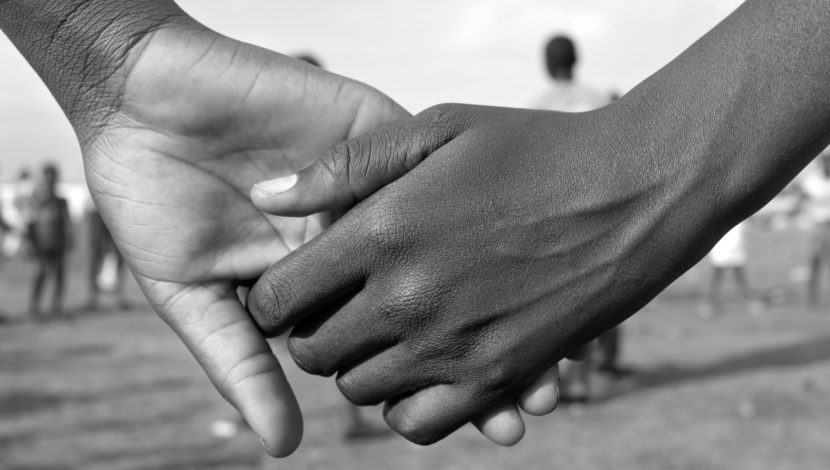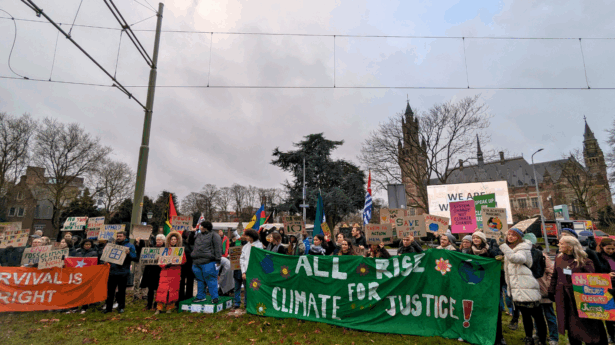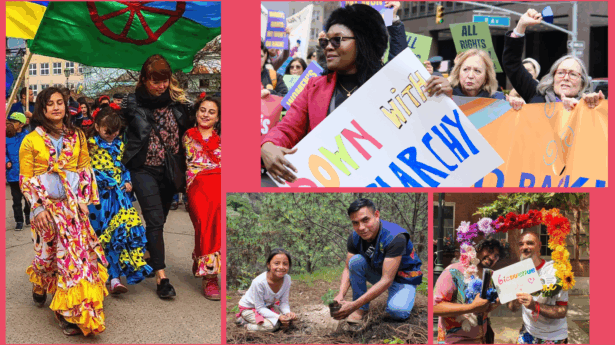The Unitarian Universalist Service Committee advances human rights through grassroots collaborations.
Grassroots Groups Are Pivotal to Haiti Recovery

January 12, 2022
In August 2021, Haiti experienced a devastating earthquake that hit its southwestern region and left more than 2,000 people dead and thousands displaced. The people recovered from the rubbles and ruins of their cities and towns were met with overwhelmed health care facilities due to the COVID-19 pandemic.
Gang violence hindered the delivery of aid to the most affected areas. The assassination of President Jovenel Moïse a month before the earthquake and the ongoing political instability in the country affected the provision of international aid, all while the nation was still rebuilding from the 2010 earthquake. Due to our long-standing relationships in Haiti and our commitment to disaster justice, UUSC provided an emergency grant to Grassroots International to assist in the earthquake recovery, while also renewing our long-term commitment to support Haitians rebuilding their nation.
For the past four months, UUSC has been working to establish long-term relationships with the following four key grassroots groups in Haiti whose work aligns with UUSC’s core initiatives (i.e., migration justice, disaster justice, international justice and accountability, and climate-forced displacement):
- Groupe d’Appui aux Rapatriés et Refugiés/Support Group for Returnees and Refugees (GARR). This group works to promote respect for and the defense of human rights, focusing on refugees, returnees, users of the Haitian-Dominican border, and, since the 2010 earthquake, internally displaced people. GARR is currently working with deportees from the U.S. to document their stories and testimonies and to provide them with resources to help them in their journey.
- Solidarite Fanm Ayisyen/Haitian Women’s Solidarity (SOFA). SOFA is a national women’s organization focused on women’s right to health, the fight against violence against women, the promotion of the participation of women in decision-making, and stopping the feminization of poverty. SOFA is leading a campaign against Coca-Cola, who through land grab, displaced almost 100,000 people from their homes to plant stevia for Coca Cola’s products.
- Platform of Haitian Human Rights Organization (POHDH) is a national coalition consisting of nine of Haiti’s foremost human rights groups. The coalition trains people at the grassroots level to work within their communities for human rights, and to monitor and document human rights abuses. Since the 2010 earthquake, the group has been documenting the human rights abuses caused by international humanitarian aid responses.
- Ayibo Post, a Haitian investigative journalism organization that provides critical information about national scandals, health crises, and political corruption to the Haitian public.
In addition, UUSC is working with advocacy allies in the United States to support the work of the Commission on Haitian Solution to the Crisis in advancing the Montana Agreement, an initiative to protect the rights of Haitians in shaping their own democracy. In alignment with our advocacy against the Biden administration’s Title 42 policy, UUSC has also been assisting Haitians seeking asylum at the U.S. border to submit their parole applications and connect with potential sponsors.
UUSC’s strategy and commitments are built on practical advice and lessons from Haiti’s movement leaders and from our own previous experience in Haiti. As we commemorate the 12th year anniversary of the deadly 2010 earthquake, these are pertinent reminders to heed in the face of a number of growing injustices, (i.e., a deadly pandemic and the inequitable distribution of vaccines to developing countries; the growing climate crisis and its disproportionate burden on small island nations; the effect of rising authoritarianism on human rights defenders and the inhumane immigration policies that are being enacted on those seeking refuge at our borders):
- Urgent humanitarian assistance is needed to support those affected by the earthquake, but so is long-term support for Haiti’s efforts to rebuild their nation, support their political autonomy, bolster grassroots movements and to restore ecological biodiversity.
- The injustices in Haiti are many — focusing long-term support on an issue/area and creating deep and meaningful relationships with groups on the ground working directly on those issues.
- Ensure that aid to Haiti gets to those who are most directly affected and do not send relief items/services that are not informed/needed by Haitian people.
- Don’t repeat past harms and heed lessons learnt from the 2010 earthquake crisis and humanitarian response.
In the spirit of learning and with a commitment to racial justice and decolonization, UUSC is revisiting our prior work in Haiti to identify what we did wrong, what we can repair and what we must avoid doing again. These are questions that we must all ask ourselves and commit to following through as we embark on a new year.
Photo Credit: iStock—KSKImaging

